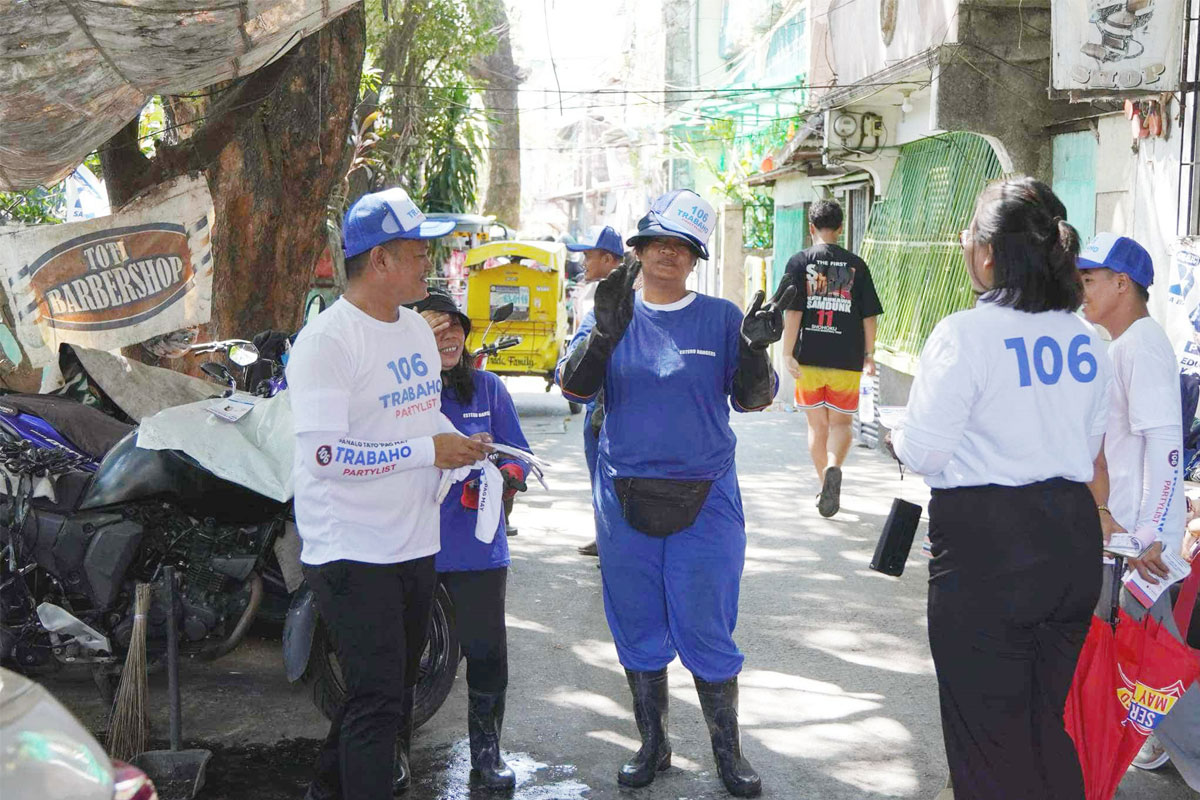
Creation of DDR pushed
THE Philippines has once again been recognized as the most disaster-prone country in Southeast Asia, according to a report by the Asian Development Bank (ADB).
With nearly 43 million disaster-related displacements recorded from 2014 to 2023, the country remains highly vulnerable to the frequent onslaught of typhoons, floods, and other natural hazards, exacerbated by its geographic location and the worsening effects of climate change.
Senator Christopher “Bong” Go, known for his long-standing advocacy for disaster resilience, responded to the report by emphasizing the urgent need for a more robust approach to disaster resilience and preparedness in the country.
“Hindi na bago sa atin ang mga trahedyang dulot ng mga bagyo, lindol, at iba pang kalamidad. Bilang isang bansa na nasa typhoon belt at Pacific Ring of Fire, kailangan nating mas palakasin pa ang ating paghahanda upang mas maging ligtas ang ating mga kababayan sa tuwing may sakuna,” said Go, highlighting the country’s vulnerability to various disasters.
The ADB’s findings highlight that the Philippines topped the Disaster Risk Index in Southeast Asia, with a score of 46.86, surpassing other nations in the region. The report also noted that the country experiences five to ten destructive typhoons annually, contributing to massive displacement and extensive damage to infrastructure and livelihoods.
In response to the country’s heightened vulnerability, Go has been at the forefront of pushing for legislative measures aimed at enhancing disaster management. Among these is Senate Bill No. 188, also known as the Department of Disaster Resilience (DDR) Act, which seeks to create a specialized department dedicated solely to disaster preparedness and response.
“Dapat mayroon tayong departamentong nakatutok lamang sa disaster preparedness at response na may klarong mandato at may cabinet-level secretary na tatayong timon pagdating sa ganitong sakuna at krisis,” said Go.
He stressed that a focused approach will lessen bureaucratic delays by streamlining disaster related efforts of various agencies in order to reduce the socioeconomic impact of future disasters while also developing and assisting communities to be adaptable, disaster-resilient, and secure.
“Layunin ng panukalang ito na mapalakas ang ating kakayahan sa disaster risk reduction, paghahanda, pagtugon sa emergencies, at mabilis na pagbangon pagkatapos ng mga kalamidad. Kung saka-sakaling maisabatas, magkakaroon po ng departamentong nakatutok na may cabinet-secretary level na timon. Hindi lang coordinating council o task force,” he explained.
Additionally, Go co-sponsored and is the principal author of SBN 2451, or the Ligtas Pinoy Centers Act, which aims to establish fully functional mandatory evacuation centers nationwide. These centers will serve as safe havens for affected residents during calamities and ensure that basic needs such as shelter, food, and medical assistance are met.
Meanwhile, Go echoed the ADB’s call for sustained investments in disaster risk reduction and resilience-building efforts. With the Philippines experiencing nearly 70% of its disaster-induced displacements from tropical cyclones and storms, Go reiterated the importance of a proactive stance in dealing with these threats.
“We should not settle with makeshift shelters for evacuees nor with just having a coordinating council or creating a task force every time disaster strikes. We must continue to improve mechanisms — from coordination among agencies and LGUs, the preposition of goods for relief, evacuation, rescue efforts, and up to rebuilding, recovery, and restoration of normalcy — to further protect lives,” he explained.




















